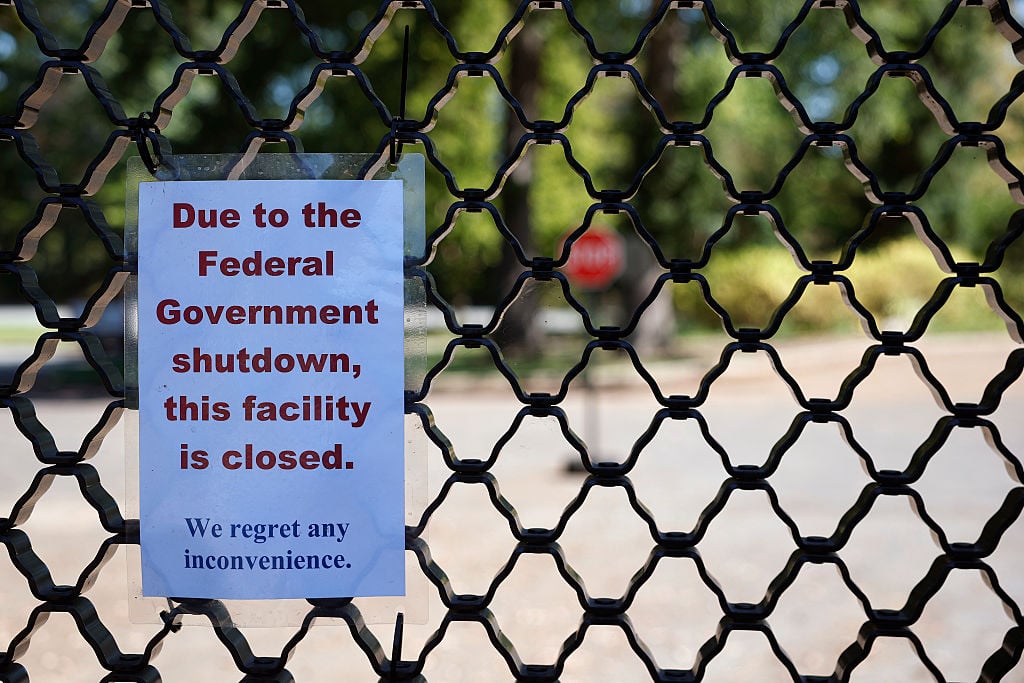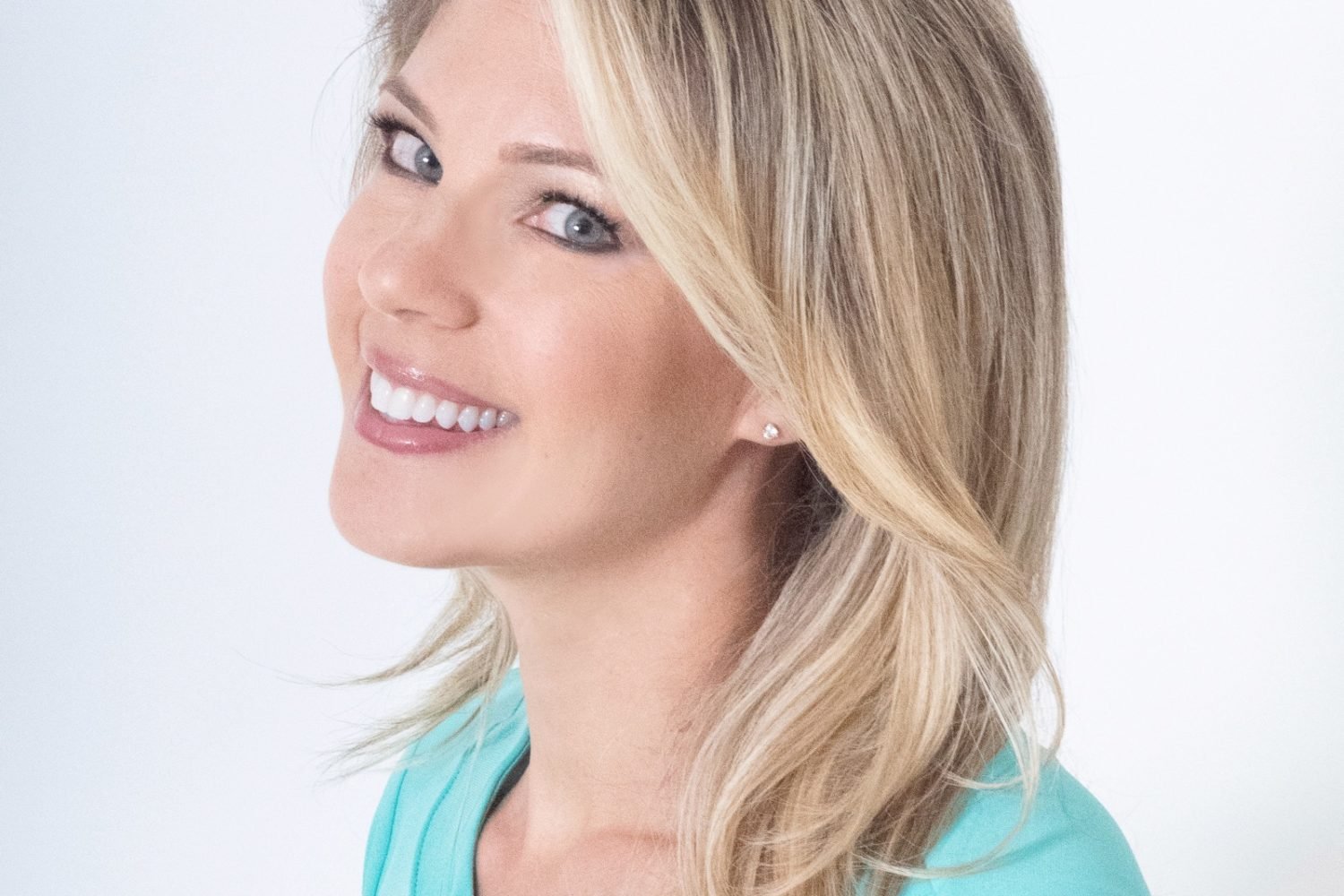Pressure began to mount for Lisa the night before she was to take the SAT exam. Curled up beneath her gold comforter, she flipped the channels on her TV and thought, "What if I fail?"
Lisa knew she had everything a 17-year-old could want: a loving family, a nice boyfriend, good grades, a bright future. Her blond hair and brown eyes made her popular with the boys. She volunteered with kindergartners; she ran cross-country. Her mother described her as "a good, hard-working kid with a great heart."
"But none of these things matter if I flunk the SAT and don't get into a good college," Lisa worried. She knew the first thing many people in Washington ask is "Where did you go to school?"
Lisa's alarm broke her troubled sleep at 7:30, 90 minutes before she had to be at Walt Whitman High. She drank a glass of orange juice and gathered her number-two pencils, calculator, and school ID.
Walking into Whitman, Lisa ignored her friends' chatter. She tried to focus on advice from the College Board Web site: Answer easy questions first, guess smart, don't panic.
"Don't panic?" she thought.
Proctors distributed tests, the room grew quiet, Lisa tried to concentrate. A half hour into the test, she "zoned out." Long before the proctor announced the end of the sixth section, she put down her pencil and closed the test booklet. She did not open it for the final verbal section.
Back at home, she called her boyfriend.
"How did you do?" he asked.
"I gave up halfway through," she said.
Three months later, as her boyfriend negotiated the traffic to DC's Wilson High School, where she would take the test again, Lisa prepared for the SAT a different way–with a cup of coffee, a croissant from 7-Eleven, and a 30-milligram Adderall pill.
Adderall is an amphetamine that doctors prescribe to help people with attention deficit hyperactivity disorder. Lisa didn't have the disorder or a prescription. She got the pills–sometimes blue, sometimes pale orange, depending on dosage–from friends.
Stepping through the metal detector at Wilson High, Lisa felt a rush of euphoria and confidence. She tore into the opening page, furiously scribbling equations and inequalities in the margin of her test booklet.
When she emerged from the building after the exam, she was still factoring quadratic equations from the test on her scratch paper. She slipped into her boyfriend's car.
"So you didn't quit on this one?" he asked.
"I could take that thing three more times today," she said.
The first time Lisa took the SAT, she scored 950. This time, with Adderall, she improved to 1050. Her father, a college professor, wasn't satisfied. She took an SAT class, dropped another 30-milligram dose of Adderall, and scored 1150.
Now she's a freshman at George Washington University–thanks, she believes, to Adderall.
Adderall is "the drug in the drawer" for many high-school and college students. "Everyone seems to have it," says Emily Schwartz, a GW freshman.
Mary Katherine Stump, a Georgetown University student, wrote in a column in a school newspaper: "During finals week here at Georgetown, campus turns into an Adderall drug den. Everyone from a cappella singers to newspaper writers become addicts, while anyone with a prescription and an understanding of the free market becomes an instant pusherman."
In the 1960s, the Rolling Stones dubbed tranquilizers and antidepressants "mother's little helper." Forty years later, Adderall is "brother's little helper." And sister's.
Prescribed liberally by psychiatrists to young people who they believe have a learning disability, such as ADHD, Adderall is easier to get on some campuses than a can of beer. Students who do not get it by prescription beg or buy a few pills from friends. Some students take Adderall to sharpen their focus; some crush and snort it to get a high.
"It seems to be quite ubiquitous on the college-campus level," says Gretchen Feussner, a pharmacologist with the Drug Enforcement Administration. Under federal laws, she says, Adderall is a Schedule II stimulant; selling or distributing the drug is a federal crime. But it is seldom enforced.
Adderall is a chemical compound of amphetamine and dextroamphetamine. It comes in four main strengths: 5, 10, 20, and 30 milligrams. Warnings with the medication say it has a high potential for abuse. Says the Web site RxList, "Administration of amphetamines for prolonged periods of time may lead to drug dependence and must be avoided."
Among Adderall's side effects are elevated blood pressure, restlessness, dizziness, insomnia, euphoria, dryness of mouth, diarrhea, constipation, and impotence.
In street terms, Adderall is "speed" in a very low dose. Methamphetamine, the drug made in clandestine labs that is tearing up families and communities across the country, is speed in high doses.
"Adderall is the primary amphetamine on the market now," says Feussner. According to IMS America, which studies drug use, 11 million prescriptions were written for amphetamine products in the US in 2004; more than 7 million were for Adderall.
In treating attention-deficit disorders and hyperactivity, Adderall is an alternative to Ritalin and other drugs such as Concerta and Strattera. Most have similar effects. For patients who suffer from hyperactivity, Adderall has a calming effect. But "average" people who have no problem focusing or staying calm often find that Adderall sharpens their focus.
"Everyone's attention span is improved by taking low doses of a stimulant," says Feussner.
There are no hard statistics on how many college students use Adderall. A University of Wisconsin study put the number at 20 percent. Our informal survey at colleges in this region suggests that some 25 percent of students have used Adderall at least once to study or to party.
In a society that encourages people to take pills for everything from sleeplessness to erectile dysfunction, popping an Adderall now and then doesn't seem shocking. Have federal agencies studied its use and abuse? Says Jules Asher, a spokesman for the National Institute of Mental Health, "Adderall is one of the things that gets kicked around between DEA, NIMH, and NIDA [National Institute on Drug Abuse]. It seems to have fallen through the cracks."
Canadian health authorities pulled Adderall from shelves last February. Health Canada cited results from a study by Shire Pharmaceuticals, Adderall's manufacturer, that reported 20 sudden deaths worldwide. The FDA reviewed the study, determined that the deaths were caused by preexisting heart problems, and required Shire to add a warning to its pills. Canada has since lifted its ban.
Is there a downside to taking the drug? Should Adderall taken for a boost in test scores be regulated like steroids used by athletes to boost physical strength?
"There are side effects and toxicity when Adderall is taken in an unregulated way," says David Zwerdling, a Silver Spring psychiatrist. He knows Adderall is being diverted and says he and pharmacists are taking more care in dispensing it. He implores parents to keep control of the pills.
"In college that breaks down," he says. "Who's going to control this medication?"
Kirk entered the Bryan Research Center at Duke University and hurried to Room 103 for his 10 AM class–Pharmacology 160: Drugs, Brain, and Behavior.
"Good morning," Cynthia Kuhn said to the 40 students. She turned to the blackboard and wrote ADDERALL. "I realize," she said, "that many of you may be using a friend's Adderall for studying or recreational purposes, not comprehending the danger, but the truth is that snorting Adderall can be worse for you than snorting cocaine."
She went on to describe the dangers of snorting nonprescribed Adderall, which increases its potency and likelihood of adverse side effects.
Kirk squirmed in his seat. "I didn't know that," he said to Claire, the brunette sitting next to him. But Kirk knew that Adderall was more dangerous than his friends at Duke were willing to admit.
Tall and lanky with olive skin and brown eyes, Kirk grew up in western Loudoun County, about 40 miles from DC. His parents came here from India. He was considered the pride of the family. He wants to go to medical school at George Washington University and fulfill his parents' dream of having their eldest son become a doctor.
Kirk worked hard to get into Duke but found he had to work much harder to compete with the other premed students. He barely kept up his grades his freshman year.
First semester sophomore year, Kirk started to sample Duke's party scene, which didn't help his grades, especially in organic chemistry. Nor did skipping class half the time. The evening before the first exam, Kirk was studying and sweating in the library. A fraternity brother picked up on his distress.
"Want to try an Adderall?" he asked. "It will help."
Kirk had never taken a pill for work or play. He'd never smoked pot. But his anxiety about taking drugs was overwhelmed by the thought of a D in chemistry on his medical-school applications. "Sure," he said.
He swallowed a 20-milligram tablet in the library at about 10 PM. The test was at 2 the next afternoon. He studied for 14 straight hours. He aced the exam.
Adderall became a staple in Kirk's academic routine: skip class and homework for weeks, take an Adderall to cram before the test. It didn't bother Kirk that he would crash afterward. He would sleep through the rest of the day and wake up "feeling as if a tiny midget had been kicking and punching me while I slept."
At first Kirk's life was improved by Adderall. The same drug that led him to dance on tables at 4 AM also kept him on the dean's list despite his class absences.
One Tuesday night before winter break, Kirk crushed more than 40 milligrams of Adderall. He had knocked off a physics exam that afternoon. He was determined to drink all night. He snorted the Adderall and reached into the refrigerator for a beer. His legs buckled, and he passed out.
Kirk awoke in the morning in a pool of vomit with the worst hangover of his life. He swore off Adderall as a recreational stimulant. He figured if he limited the drug to schoolwork, he could control it.
Final exams exert enormous pressure at schools like Duke. Kirk braved the December winds night after night to hole up in the library. Over five days he took 200 milligrams of Adderall and slept a total of ten hours.
On the morning of his fourth and final test, Kirk's heart began to beat quickly, and a fever burned his face. His roommate rushed him to the hospital with a temperature of 103.5 degrees.
Kirk missed the final exam for his Behavior/Neuroscience class and had to get a dean's excuse to take it after winter break. With the cold compresses on his forehead and chest, the stern skepticism of the dean, and the worry in his parents' faces, it wasn't an experience he wanted to repeat.
Kirk was remembering that experience as Professor Kuhn described how Adderall affects brain chemistry, by boosting dopamine and serotonin, and increases heart rate. Claire tapped his knee.
"I don't care what Dr. Kuhn says–I'm still going to use Adderall, at least for the MCAT," she said. "What about you?"
Kirk considered the question and realized that Claire, like most students, would never admit that Adderall was dangerous. And though he hadn't touched it since his hospitalization four months earlier, he couldn't imagine taking an eight-hour test like the MCAT without it. He looked at Claire and whispered, "Sure am."
Gretchen Feussner, the DEA pharmacologist, is not surprised that premed students would drop some Adderall before taking an admissions test.
"We know Adderall is used by college students for a variety of reasons," she says, "primarily to study."
We are sitting in an "intel" conference room at DEA headquarters in Pentagon City. This is where DEA agents track shipments of cocaine from Colombia and heroin from Afghanistan. Digital clocks track time from here to Kabul. Flat-screen TV monitors hang on the walls. But Adderall isn't on the DEA's radar.
"We don't see that many problems with Adderall," says Feussner, who has been reviewing prescription drugs for 15 years. "We don't have any idea how many kids are abusing this substance."
She says: "If you take Adderall, you face the same dangers as taking cocaine and meth. Your tolerance goes up; you can get addicted. But there's no data showing that it's happening."
In comparison to methamphetamine–speed made in clandestine labs by the likes of motorcycle gangs–the DEA sees Adderall as a middle- and upper-class designer drug.
"Adderall has the same potential for abuse as meth or cocaine but it is not viewed as a serious drug of abuse," Feussner says.
But because Adderall is a Schedule II stimulant, distributing it without a prescription is a violation of federal law.
"Yes," she says, "it's against the law. But who's going to pick up on that? DEA agents are not invited onto college campuses. We are not there to be Mom and Dad. We don't target campuses. They are not our mission."
Feussner has downgraded Adderall to a societal issue. "We give kids the message that if they take this or that medication, things will be better," she says. "Have a three-martini lunch? Take an Adderall and get focused. Trouble sleeping? Take a Xanax."
Is Adderall a no-fault drug?
"If the use is continued and the dose escalates," she says, "they're setting themselves up for a real problem, especially if there's a history of addiction in the family. It could escalate to cocaine.
"It's important for us to give the message that kids should stay away from this drug without telling horror stories," she adds. "We don't want to lie to them. It's a delicate balance of how much information to give. They might say, 'Gee, I want some.' "
People have wanted some of Sam Alexander's Adderall for years. He was unpacking his bags in his new apartment in DC a few months ago when the phone rang. It was Michelle, his girlfriend from high school.
"Sam, you have to hook me up with some Adderall," she said. "I'll pay whatever you want for it–just please say yes."
Sam's doctor first prescribed the medication for his attention problems; word got around that he had a supply, and in high school and college his phone often rang with requests. After he graduated from Duke and landed a job in DC, the requests continued.
Michelle had already called six times trying to buy Adderall. Sam never refused Adderall to his friends, but now he was resolute: "She obviously had a problem, and I just couldn't add to it," he says.
Sam had sailed through childhood in Potomac. Tall and athletic, he excelled in baseball, basketball, and golf. He was popular with the girls at Stone Ridge and National Cathedral School.
His only trouble was in the classroom. In elementary school he had difficulty concentrating on his work. Freshman year at a private school for boys in Bethesda brought more pressure. Sam visited a doctor, who prescribed two ten-milligram pills of Adderall each day for classes and homework. Sam kept several doses in a box attached to his key chain. "If it wasn't on the key chain," he says, "I'd forget to take it."
By senior year Sam had a GPA that put him near the top of his class and an acceptance letter from Duke University. "All thanks to Adderall," he says.
Throughout senior year in high school and later in college, Sam dispensed free Adderall to "over a dozen" close friends and his college girlfriend. He says about 75 percent of those were for academic purposes.
What about the friends who wanted Adderall to party?
"I don't feel like there is a need to give a warning to anyone," he says. "I just don't see it as a dangerous drug."
At Duke, Sam needed Adderall less and less–which doctors say is common–but he kept his prescription, and the pills piled up in his drawer. He could have sold his extra Adderall. According to interviews with college students, the market for Adderall fluctuates with exam schedules. A 20-milligram dose might go for $10 during the year but jump to $40 during exams. Sam says he never asked for money.
In college he watched as friends crushed the pills and snorted the dust like cocaine through $20 bills or cafeteria straws. He had slept as his girlfriend pounded furiously on her keyboard to finish a ten-page paper in ten hours on ten milligrams of his Adderall. He had persuaded a skeptical friend at James Madison University to swallow a pill for the first time, though both were drunk and unsure how the friend would react to the drug.
Through it all, Sam never felt guilty dispensing Adderall. But when his friend Michelle kept calling the night he moved into his DC apartment, he drew a line: "It was the first time I ever felt like a dealer."
Now in his first job after college, Sam still takes Adderall. He can function without it but not as well. He still keeps his supply in a little box hooked to his key chain.
"It's not like smoking," he says, "where I know in the back of my mind I should be trying to quit eventually. It's medicine for a problem I have. Why should I run away from a good thing?"
But he's no longer a supplier to friends who seem desperate.
Psychiatrist David Zwerdling was treating a young woman who complained about her inability to stay focused. In college classes, her mind wandered. He diagnosed attention-deficit disorder with hyperactivity, ADHD, and prescribed low doses of Adderall.
She wanted to be a lawyer. "As it came time to study for her final exams, with law school looming, she saw Adderall as a very good thing," he says, "so she took more pills."
She kept taking the extra doses through exams and lost track of how many she was taking. She returned to Zwerdling in distress.
"She had trouble sleeping, she had a rapid heartbeat, she became paranoid," he says. "She experienced fainting and seizures."
Zwerdling took her off the medication for a while. When he restarted it, he prescribed enough for one week at a time and put a relative in charge of dispensing the pills.
"She may have become psychologically and physically dependent on it," he says. Though unusual, he says, such dependency can happen.
Zwerdling prescribes Adderall regularly. Like most mental-health professionals, he views it as a useful tool in helping people with attention problems. But he has seen firsthand the need for better controls.
"I had a patient who needed Adderall, especially when she got into high school," he says. "She was a smart girl and came from a solid family. She started selling the drug at school. It's not that uncommon."
What's uncommon is that Montgomery County police investigated the girl's sales activity and arrested her about six months ago, according to Zwerdling. Police would not release information about the incident.
Says Zwerdling: "Knowing it's being diverted, doctors and pharmacists are becoming more careful. But one of the best ways to control it is to make it very, very clear to parents that they have to supervise the use of Adderall. They have to keep the bottle under control. They have to observe the child taking the medication.
"Many parents are surprised to hear this."
Lisa, the GW freshman, recalls a conversation she had with her boyfriend's mother when she was a senior at Whitman High.
Lisa said, "I'm so behind in my math class–the classes are boring, and I can't keep up."
Her boyfriend's mother said, "You need to focus. You could use some Adderall."
Lisa agreed. She had been taking Adderall without a prescription for months, but she was out. She knew her boyfriend's little brother had a prescription, but he rarely took it. She went into his medicine cabinet, found the bottle, and walked away with it.
Lisa says she ran into the little brother at school the next day. He told her he had some extra Adderall and was planning to sell it.
"Not anymore," she said. "I took it from your bathroom yesterday."
Lisa first used Adderall when she was a junior. "I had such great focus," she says. "It was awesome."
She found a crowd of boys who always seemed to have plenty of Adderall. She would flirt with them. They would give her little bags of pills.
Lisa says she took Adderall every morning her senior year. She started taking one five-milligram dose, but that didn't do the job, so she upped it to ten milligrams. She focused at school and got good grades.
But there was a downside.
"I got so skinny that if you touched my stomach, it would hurt," she says. "One day I took Adderall in the morning and drank a few beers at night. I started sweating and threw up. I would never take it again if I knew I was going to drink."
Does she feel that she needs Adderall? Is she addicted?
"No," she says. "When I can't take it, I don't need it. But I wish I had it."
After slogging through her first two months at George Washington University, she's starting to get it. Her source is an upperclassman, who asked her about psych class one day.
"It's hard and boring," she responded.
"It doesn't have to be so hard," he said.
"How?"
"By taking some Adderall out of my backpack," he said.
He told her he had sold 120 pills at $5 each in the last two weeks; he gave her two dozen 20-milligram pills for free. She used two per day during midterms and is saving up for finals.
Adderall is not for everyone. Take Andrew. The University of Maryland junior started college with a heavy load of math courses for his engineering major. "I was taking a Calculus II course and hadn't gone to class or studied," he says. "I had to learn a whole course in six hours."
Adderall was "always around" his dorm. Half the kids on his hall were regular users. He bought two white pills from a girl down the hall for $5, dropped both, studied for six hours, and did well on the exam.
"Next day my brain was hurting," he says. "I passed out."
Nevertheless, Andrew kept taking Adderall on occasion to study. One day in his sophomore year he took a stronger dose to study for an engineering exam. It took an hour to kick in.
"When I got up to take a drink of water, I didn't feel right," he says. "I sat back down and still felt unsteady. I focused for another two hours and tried to go to sleep. My heart was pounding. No way I could sleep."
He went to a movie and passed out.
"After that I didn't use Adderall," he says. "I realized it wasn't a good idea to wait until the last minute to study. I manage my time better.
"My grades have improved," he says. "I guess I grew out of it."
Rebecca Dreilinger returned to Brandeis University after Thanksgiving break in 2004 daunted by her workload. She had to finish her senior thesis on Spanish-language media coverage of the US 2004 presidential campaign. "I was stumped," she says.
Dreilinger was working out in the school gym and talking to a friend about her problems writing the thesis. Another student overheard them and walked over.
"I heard you talking about your paper," she said. "Have you thought of trying Adderall? You'll never write a better paper."
Dreilinger grew up in Bethesda and graduated from Holton-Arms, a top private school for girls. Competitive as Holton was, the pressures there were light compared to expectations at Brandeis. Dreilinger was working hard and getting good grades; she wanted to keep it that way.
She remembered her cousin talking at Thanksgiving about students using Adderall at the University of Virginia. "At the library, everyone is totally cracked out on Adderall," her cousin had said. "It's not fair. Why should they be able to party, take a pill, come to the library all bleary-eyed, cram, and get good grades?"
In the gym at Brandeis, Dreilinger thanked the student who offered the Adderall but declined. She went back to her dorm and worked on her thesis. But she was stuck. She could not organize her research into a coherent paper.
At her computer, she was about to e-mail the girl from the gym and take her up on her Adderall. The phone rang. It was her mother. They didn't discuss the paper or the pill.
"Just hearing from her was enough," says Dreilinger. "I knew she would kill me if she knew I had taken a drug to get me through."
Dreilinger bore down and finished the thesis on her own.
"It was a tough paper to write," she says, "but it would be mine, good or bad. If I had used Adderall, I never really would have known what I'm capable of doing on my own."
While Rebecca and Andrew turned away from Adderall, clearly many students use it regularly for the boost they get, in either in grades or pleasure.
But the questions remain: How dangerous is it? Is it ethical? Does it give students an unfair advantage over others who don't use it? Or is it just par for the course in today's pharmaceutical world?
"It's using chemistry to help yourself through problems," says Beth Kane Davidson, director of the Addiction Treatment Center at Suburban Hospital. "It is what we do as a society. That's why our treatment centers are full."
National editor Harry Jaffe writes often about drug abuse and crime. Former editorial intern Alex Chip is a recent graduate of Duke University; this is his first feature for The Washingtonian.


















